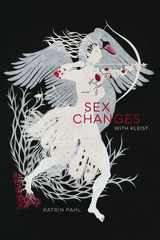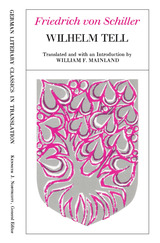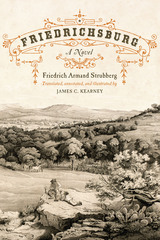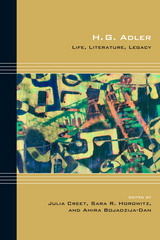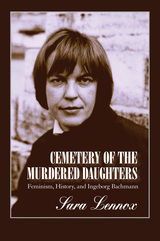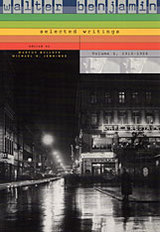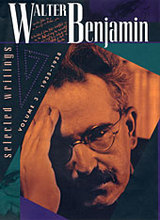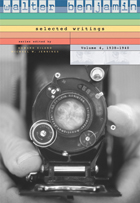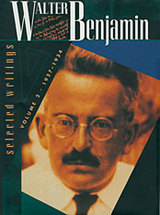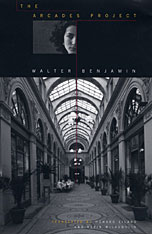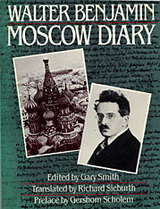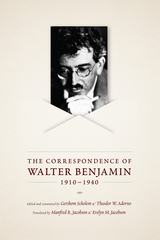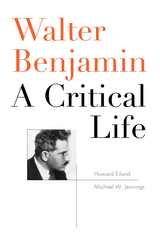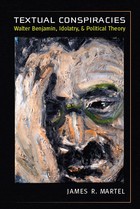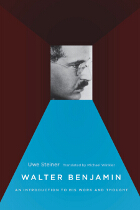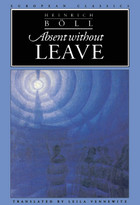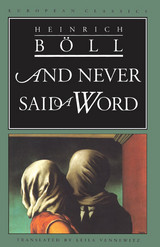Conceived in the early Thirties, the Berlin Childhood belongs in the orbit of that primal history of the modern world on which Benjamin was working during the last thirteen years of his life. It forms the subjective counterpart to the masses of materials brought together for the project on the Paris arcades. The historical archetypes he wished to lay out in their social-pragmatic and philosophical provenance in the study of Paris were to be illuminated by lightning flashes of immediate remembrance in the Berlin book, which throughout laments the irretrievability of what, once lost, congeals into an allegory of its own demise. For the images this book unearths and brings strangely near are not idyllic and not contemplative. Over them lies the shadow of the Third Reich. And through them dreamily runs a shudder at the long forgotten.
-- Theodor Adorno, Afterword to Berlin Childhood around 1900 (1950)
Berlin Childhood is an extraordinary autobiography in which the 19th-century city comes alive, not through abstract analysis or even storytelling but through details like ‘anthracite as it falls from the coal scuttle into a cast-iron stove, the dull pop of the flame as it ignites the brass mantle.’ Benjamin transports us to the fragmented immediacy of childhood, the city breathing just beyond the confines of home.
-- Yvonne Sherratt Wall Street Journal
Benjamin’s autobiographical masterpiece,…Berlin Childhood around 1900, is a reminder of the astonishing courage and modesty of a writer who, in the mid-193os, was fully and painfully aware both of the coming catastrophe and of what precisely had been lost already (both personally and collectively)… Berlin Childhood is an extraordinary work: as if the extravagant wanderings of Joyce and Proust in the labyrinths of memory and the city had been condensed and refracted to a kaleidoscopic 160 pages. It is less a memoir than a hallucinated inventory of the space of childhood, an eerie projection of the most intimate and exposed places in the author’s recollection, ‘images in which the experience of the big city is precipitated in a child of the middle class’… Berlin Childhood around 1900…imagines the city as a series of resonant nooks and crannies, suffused with an adult’s longing that is never merely individual but which reconstructs a whole historical era in the sound of a carpet being beaten in a courtyard or the ‘giant bloom of plush’ that was his grandmother’s apartment. Inevitably, minor childhood traumas prefigure mature miseries, the time and space of childhood and adulthood interweaving in the most telling ways.
-- Brian Dillon Irish Times
Now is the time to read Walter Benjamin, when doors to the future are slamming shut around us and freedom dribbles out of a modern life that is squeezed by masses of information delivered at high speeds and by a rigid morality that circumscribes behavior, movement and thought… He intended his memoir Berlin Childhood around 1900 as a goodbye to a city he loved but knew he could never again inhabit. Begun in Spain and Italy in 1932, it was finished in 1938 but wasn’t published until 1950, 10 years after he died of an intentional overdose of morphine while fleeing the Gestapo. Benjamin regarded the book as a series of ‘expeditions into the depths of memory,’ an act of ‘digging’ for the future.
-- Susan Salter Reynolds Los Angeles Times Book Review
The Proustian ideal of the redemption of ‘lived experience’ lies at the heart of Benjamin’s idiosyncratic memoir, Berlin Childhood around 1900… In Berlin Childhood he offers us a cityscape of the German capital as seen through the eyes of a precocious and impressionable youth. He revisits his favorite childhood haunts—the zoos, swimming pools, grammar schools, parks and railway terminals—and milks them for utopian potential… In a sense, Benjamin regarded childhood much as he did modern literature: as an invaluable repository of utopian longings and dreams in an age of industrialized degradation. Berlin Childhood represents his own Proustian effort to recapture lost time, a time that any revolution worthy of the name would seek to restore.
-- Richard Wolin The Nation
Comprised of thirty prose pieces separated by montage-like headings, Berlin Childhood provides a series of intimate glimpses into Benjamin’s bourgeois Jewish upbringing. Some of the most heartbreaking scenes include Christmas Day at his grandmother’s house, ice skating, visiting an otter at the zoo, catching butterflies, searching for peacock feathers, and wandering around the streets. In these glimpses of an irretrievable past, homesickness is tangible… The new and brilliantly executed translation by Howard Eiland is of the final 1938 version.
-- Eric Bulson Times Literary Supplement
Benjamin’s work continues to fascinate and delight because it has something for everyone: the literary critic, art historian, philosopher, urban theorist and architect. Whether he is talking about children’s toys, Mickey Mouse, Surrealism, photography, or Kafka, Benjamin has a knack for figuring out what they can tell us about the wider world that produced them.
-- Eric Bulson Times Literary Supplement
Begun in 1932 and extensively reworked between then and 1938, Benjamin’s recollection of his childhood remained unpublished during his lifetime. Now available in English for the first time, this unconventional autobiography is of a piece with, and in some respects the culmination of, Benjamin’s philosophical work. The three abiding aspects of his character—the flâneur, the allegorist and the collector—had already come together in Benjamin as a child.
-- London Review of Books
Benjamin has an affecting approach to the victories of childhood, exhibiting pleasure and regret at once… Benjamin was acutely aware of history—the history of ideas, the history of violence and fear, the history of commerce and objects. He annotated mentally whatever he saw, then dwelt on it till it became meaningful, maybe incandescent. He tried to see everyday life through the eyes of a mystic.
-- Robert Fulford National Post
Benjamin was a consummate polymath who wrote with erudition, playfulness, and compassion… In Berlin Childhood around 1900, Benjamin turns his scalpel on his childhood, Berlin, and the capricious faculty of memory… The reader stands awestruck as Benjamin flits effortlessly from memory to memory, from his mother’s sewing box to the otter’s cage at the Berlin Zoological Garden, seemingly unaware of the catastrophic shadow looming over him. In Benjamin’s hands, the most pedestrian moments of an inward-facing, bourgeois childhood become revelations about discipline and ideology… As with Kafka, Benjamin’s prose shines most brightly through the language of parable, the cliched, but somehow unexpected aphorism… His province is the truth we always knew but could never quite put into words, the eerily reminiscent description.
-- Michael Lukas Tikkun
Readers of Berlin Childhood will delight in Benjamin’s precise prose, rich in simile and metaphor… A Proust devotee and translator, Benjamin will appeal to enthusiasts of the French master. Intensely modern in its treatment of the city, in its unique approach to autobiography, Berlin Childhood, known only to Benjamin admirers for too long and available only recently in English, belongs in the canon of classic 20th-century texts.
-- Rachel Eve Nisselson AmeriQuests
Fifty years after its posthumous publication in German, this tidy volume of urban vignettes—memories of imperial landmarks and family vacations, school libraries and the arrival of the household telephone—has earned its own afterlife. The later writings of Roland Barthes are obvious descendents, and even Jacques Derrida’s final fixations on hospitality and his native Algeria bear its trace, however unconsciously… [Here are] some of the most marvelous performances of a master stylist… Berlin Childhood around 1900 finally functions like all excavations of lost time: the little boy may be innocent, the remembered milieu yet to be complicated, but the effect is unquestionably narcotic.
-- Jonathan Liu Harvard Book Review
Walter Benjamin’s autobiography of his early childhood is a welcome addition to the English language body of Benjamin’s work… Berlin Childhood around 1900 offers a rich portrait of Berlin at the turn of the twentieth century. Benjamin provides descriptive accounts of his experiences at famous landmarks, such as the Victory Column and the Tiergarten. His autobiography also provides an uncanny perspective of middle-class life in Berlin… While this autobiography focuses on Benjamin’s early childhood, it also profoundly speaks to Benjamin’s anxieties about living in exile and his precarious future… Benjamin’s is a rich autobiography that is translated well and provided with helpful notes by Eiland.
-- Sara A. Sewell H-Net Reviews
Berlin Childhood is not only an autobiographical text by the literary critic, historian and philosopher Walter Benjamin. Describing Berlin around 1900 from the point of view of a child that is introduced into the customs and way of life of society, it also explores a whole era in a nutshell, as Benjamin did on the grand scale in his Arcades Project. And, not least, this book examines the structure of an individual memory and its relation to history.
-- Barbara Sattler Metapsychology
All serious general readers should know something about Benjamin and his ideas… Harvard University Press is doing its best to make this a realistic goal.
-- George Fetherling Seven Oaks
Howard Eiland’s translation…is incomparable.
-- Charles Mudede The Stranger
[Berlin Childhood around 1900] is a series of miniature portraits conjuring up people, objects, streets, and interior scenes that reveal his childhood in a wealthy, assimilated Jewish family in Berlin’s West End at the turn of the century. In the letter to Gershom Scholem in 1932, Benjamin notes these childhood memories are not narratives in the form of a chronicle, but individual expeditions into the depths of memory. Benjamin is a writer who deserves our full attention.
-- George Cohen Booklist
Walter has been our philosophy pin up boy for a while now and this book is another jewel in his crown. An autobiography as a series of vignettes that concentrate on memory and how we understand not just ourselves but the cities and places we live in. Underlines the works he produced later in life with a profoundly personal understanding. Brilliant.
-- Bookshop catalogue of the Institute of Contemporary Arts, London

